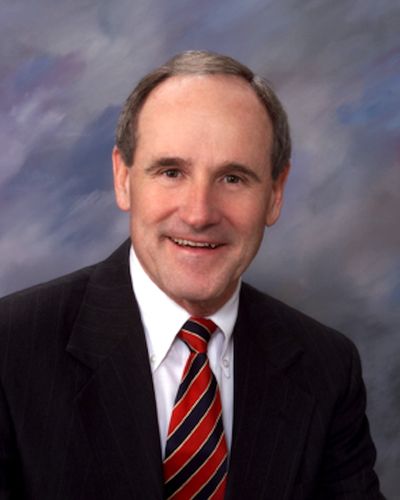Risch backs loan deal to help plant
Half of $4 billion guarantees would go to Ohio rival

BOISE – U.S. Sen. Jim Risch would back doubling federal loan guarantees for U.S. uranium enrichment projects to $4 billion and awarding half to a proposed new Ohio plant, if that’s what it takes to help a competing proposal in Idaho that the first-term Republican fears could fall victim to politics.
Risch said in an interview Thursday the political clout of lawmakers in Ohio, an important battleground state in presidential politics, could wind up hurting efforts by French-owned Areva Inc. to secure the $2 billion the Department of Energy currently has set aside for loan guarantees to uranium enrichment projects.
USEC Inc. was told by the DOE in late July it wouldn’t get the guarantees because its partially built plant near Cincinnati wasn’t ready to go forward. Just a week later, however, the agency offered the Bethesda, Md.-based-company another six months before doing a final review of the loan application.
As a member of the GOP minority, former Idaho governor Risch has found himself in the role of stopper on Democrat-backed issues including expansion of union power, pollution-credit trading and President Barack Obama’s push to reform the U.S. health care system. But divvying up loan guarantees, especially if it favors a project in his backyard, is an area where the first-term senator said he’s willing to make a deal.
“There’s tremendous political pressure to favor USEC,” Risch said. “We’ve got to be very cautious in this.”
Areva wants to build its plant near Idaho Falls, not far from the Idaho National Laboratory nuclear research site.
But Idaho has just 1.5 million residents and four federal lawmakers; Ohio has nearly 12 million people, 20 lawmakers and is a bellwether state in national politics, something Risch says could sway decisions in Washington, D.C.
The DOE has yet to award a loan guarantee to Areva for its proposal, similar to a new plant it’s building in its home country.
The guarantees, when finally awarded, won’t necessarily go to a single company, and could still be divided.
“We’re reviewing their application right now, and will make a decision as soon as we’re able to do that,” said Stephanie Mueller, a DOE spokeswoman in Washington, D.C.
Lawmakers in states that would benefit from the projects are vying for the federal guarantees, which will help lure investors and reduce the cost of borrowing because the U.S. government promises to step in and assume private debt obligations if the borrower defaults.
The $2 billion guarantees were part of the federal Energy Policy Act passed in 2005 to speed nuclear energy facilities.
USEC CEO John Welch, who has struggled to attract financing for his $3.5 billion plant, says its success may depend on whether USEC wins guarantees.
When the Department of Energy told Welch July 28 his proposal wasn’t ready, he announced he was “shocked” and immediately wrote Obama urging a change of heart.
And U.S. House Republicans including Ohio Rep. Jean Schmidt, who represents the district where the USEC plant will be built, and Tennessee Rep. Zach Wamp, whose district includes a plant where equipment is being made for the Ohio facility, organized rallies to pressure DOE Secretary Steven Chu to reconsider.
Chu did exactly that last week, opting to give USEC “the time it needs to more fully test its technology and develop additional financial support for the project,” according to a statement.
For Risch, this is a sign of just how high the stakes are – and an indication that expanding loan guarantees, rather than limiting them to the $2 billion USEC and Areva are both vying for, may be the best way to ensure Areva’s project outside Idaho Falls is completed.
“I have no problem with (expanding guarantees.) We’re talking guarantees, we’re not talking about cash grants,” Risch said. “These outfits know what they’re doing, neither one of them are slouches.”
Areva aims to start construction in 2011, creating about 800 construction jobs and 300 full time jobs in eastern Idaho. If approved, the Eagle Rock plant is scheduled to be operating by 2014.